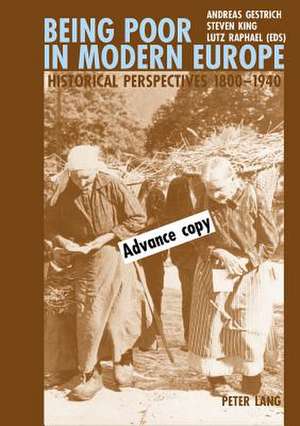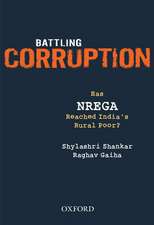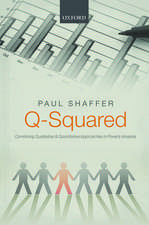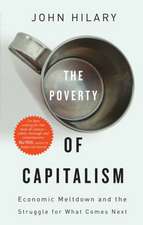Being Poor in Modern Europe
Editat de Andreas Gestrich, Steven King, Lutz Raphaelen Limba Engleză Paperback – 18 sep 2006
Preț: 805.20 lei
Preț vechi: 1103.01 lei
-27% Nou
Puncte Express: 1208
Preț estimativ în valută:
154.11€ • 160.29$ • 129.15£
154.11€ • 160.29$ • 129.15£
Carte tipărită la comandă
Livrare economică 13-27 martie
Preluare comenzi: 021 569.72.76
Specificații
ISBN-13: 9783039102563
ISBN-10: 3039102567
Pagini: 540
Ilustrații: Illustrations
Dimensiuni: 150 x 224 x 28 mm
Greutate: 0.73 kg
Ediția:Nouă
Editura: Peter Lang Gmbh, Internationaler Verlag Der W
ISBN-10: 3039102567
Pagini: 540
Ilustrații: Illustrations
Dimensiuni: 150 x 224 x 28 mm
Greutate: 0.73 kg
Ediția:Nouă
Editura: Peter Lang Gmbh, Internationaler Verlag Der W
Notă biografică
The Editors: Andreas Gestrich is Professor of Modern History at the University of Trier. He specialises in the social history of childhood and youth and the family, media history, social history of religion and the history of poverty and welfare in European cities. Steven King is Head of the Department of History and Director of the Wellcome Trust Centre for Health, Medicine and Society at Oxford Brookes University, England. He publishes in the areas of rural industrialisation and historical demography, medical history and poverty and welfare. Lutz Raphael is Professor of Modern and Contemporary History at the University of Trier. He specialises in the nineteenth- and twentieth-century history of Western Europe, the history of historiography, the influence of expert knowledge on the regulation of everyday life and the history of poverty and welfare in rural societies.
Cuprins
Contents: Andreas Gestrich/Steven King/Lutz Raphael: The experience of being poor in nineteenth- and early-twentieth-century Europe - Richard Dyson: Who were the poor of Oxford in the late eighteenth and early nineteenth centuries? - Margaret Hanly: Being poor in nineteenth-century Lancashire - Thomas Sokoll: Writing for relief: Rhetoric in English pauper letters, 1800-1834 - Michèle Gordon/Jens Gründler: Migration, survival strategies and networks of Irish paupers in Glasgow, 1850-1900 - Elizabeth Hurren: The business of anatomy and being poor: Why have we failed to learn the medical and poverty lessons of the past? - Pete King: Destitution, desperation and delinquency in early-nineteenth-century London: Female petitions to the Refuge for the Destitute - Ina Scherder: Galway workhouses in the nineteenth and twentieth centuries: Function and strategy - Inga Brandes: 'Odious, degrading and foreign' institutions? Analysing Irish workhouses in the nineteenth and twentieth centuries - Virginia Crossman: The humanization of the Irish Poor Laws: Reassessing developments in social welfare in post-Famine Ireland - James Smyth: 'Seems decent': Respectability and poor relief in Glasgow, c. 1861-1911 - Beate Althammer: Functions and developments of the Arbeitshaus in Germany: Brauweiler workhouse in the nineteenth and early twentieth centuries - Katrin Marx: From 'old' poor relief (Armenpflege) to 'new' welfare (Wohlfahrtspflege). Development of 'family care' in rural Germany - Jürgen Harder: German reformatories in the Weimar Republic: A view from inside - Kristina Matron: Big-city youth and psychological health: Municipal youth welfare in Frankfurt am Main during the Weimar Republic - Steven King: The clothing of the poor: A matter of pride or of shame? - Matthias Reiss: The image of the poor and the unemployed: The example of Punch, 1841-1939 - Andreas Gestrich: Depicting the 'moral dregs of our great population': An 1890 illustrated newspaper series on 'The Homes of the Glasgow Poor' - Martin Krieger: Walking stick and begging permit: Perceptions of rural poverty in photography from Germany between 1916 and 1936 - Ludwig Maria Vogl-Bienek: 'From life': The use of the magic lantern in nineteenth-century social work - Gerhild Krebs: Poverty and crime in silent fiction films.











